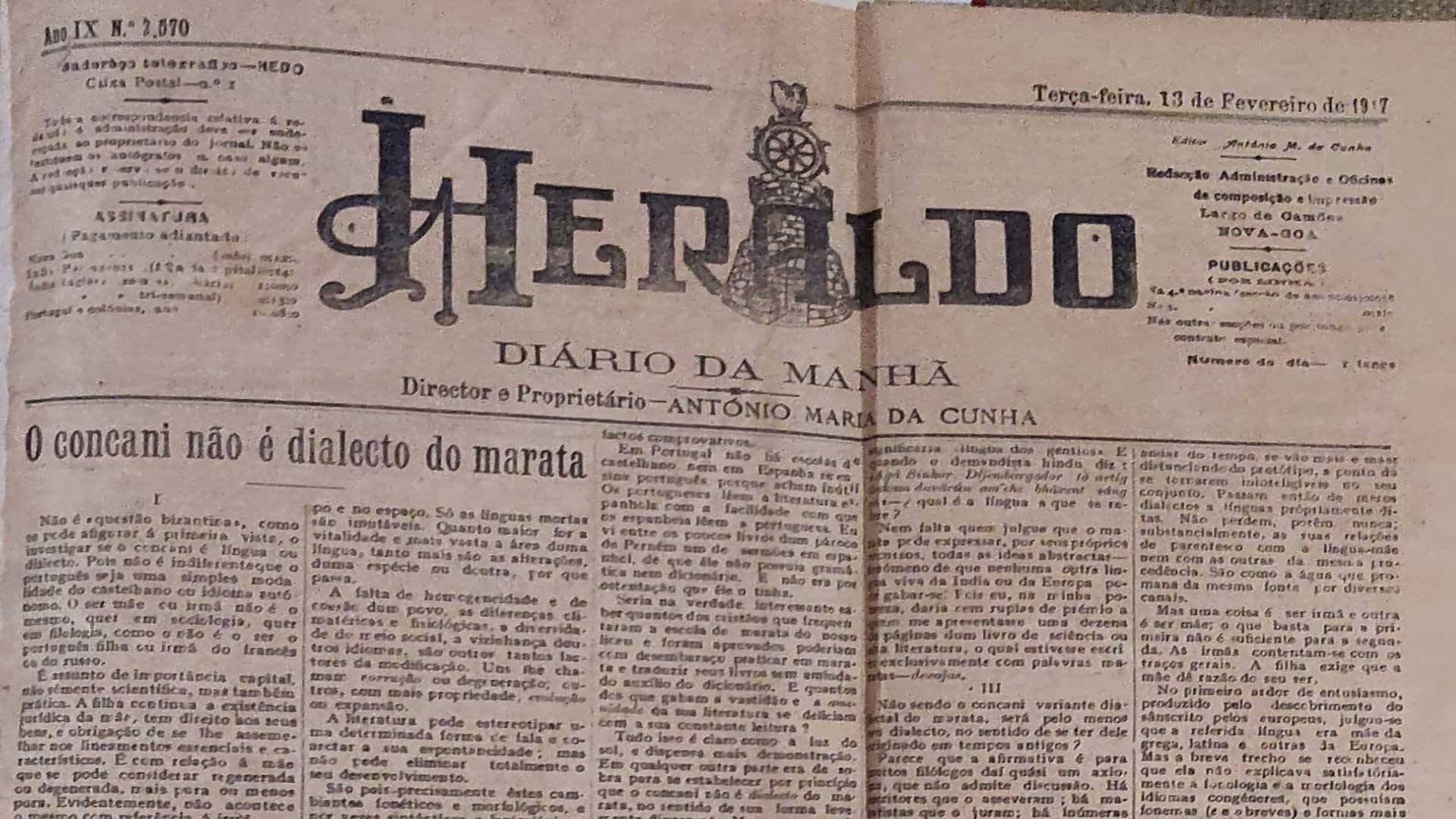Konkani is not a dialect of Marathi - 1
Part 1 of "O concani não é dialecto do marata", by Mgr. Sebastião Rodolfo Dalgado, in Heraldo, Pangim, Goa, No. 2570, 13 February 2017. Translated from the Portuguese by Óscar de Noronha.
It is not a “Byzantine general’s problem”, as it might appear at first glance, to check whether Konkani is a language or a dialect. For it does matter if Portuguese be a mere modality of Castilian or an autonomous language. Being a mother or a sister is not the same, whether in sociology or in philology, just as it is not the same whether Portuguese be a daughter or a sister of French or of Russian.
It is a subject of capital importance both scientific and practical. A daughter carries on her mother’s existence in law, is entitled to her assets and is sure to resemble her in essential and characteristic features. It is in relation to her mother that she may be considered an improvement or a deterioration, more pure or less pure. Evidently, it is not so with her sister.
All glottologists acknowledge that it has been of utmost value to ascertain that Sanskrit is not the trunk but only a branch of the Indo-European family. Max Muller (Science of Language, 1890, I. p. 194) states: “It was exactly this necessity of determining distinctly and accurately the mutual relation of Sanskrit and the other members of the same family of speech, which led to such important results, and particularly to the establishment of the laws of phonetic change as the only safe means for measuring the various degrees of relationship of cognate dialects, and thus restoring the genealogical tree of human speech.”
For some time now, much has been magisterially written to the discredit of the ill-fated Konkani language; she has been cannily smeared with such dark colours, and exposed to public scorn as being such a horrendous monster, that I believe it opportune to know, clearly and without gimmicks, if she really deserves such treatment.
It is true that the subject has already been dealt with, quite exhaustively, by competent people, especially Dr Gerson da Cunha (The Konkani Language and Literature) and Ramachandra Gunjicar (Sarasvati mandala).
But, from the looks of it, they have not been read or duly studied by many who repeat what they have said about Konkani. Or else, we would not hear so much nonsense laced with disconcerting remarks.
It is also our generally accepted policy that money spent on the purchase of books is a waste. And with regard to Konkani, almost all Goans possess a magical mastery given that they have learned to babble it away on their mother’s lap! If some admit that they fall short, yet argue and come up with far-fetched doctrines, they do so out of false humility.
I do not propose to treat the matter at great length; it would take much time and space. I will gather what others have put forth and indicate the main topics leading to further research by a person well-meaning and eager to learn, that rara avis, if there is any.
(First published in Revista da Casa de Goa, Lisbon, Series II, No. 24, Sep-Oct 2023, p. 15)
